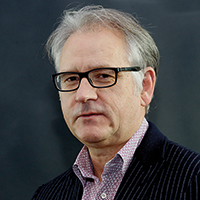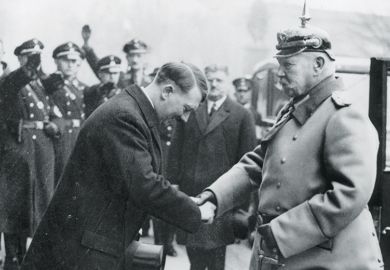In February 2018, Europeans celebrated the fact that the Berlin Wall has been down longer than it was up. Yet for a continent that is grappling with new divides, this watershed moment was bittersweet. While old walls have come down, new walls have gone up. The financial and refugee crises exposed a Europe that remains deeply divided – between winners and losers, East and West, creditors and debtors, liberals and nationalists.
Germany is officially unified but at elections last year the country’s divides were laid bare for all to see. Social democrats slumped to their worst result since the 1930s, while the national populist Alternative for Germany (AfD) captured their first (94) seats in the Bundestag, demolishing the claim that populism simply cannot thrive in the nation that gave the world National Socialism.
Since then, things have got even worse for liberals. The German Social Democrats have fallen further, to just 15 per cent in the opinion polls, behind even the AfD. Nor is this an exceptional case. In Austria, France and the Netherlands centre-left progressives have fallen to some of their lowest levels of support on record, while national populists have mounted a major electoral assault. Marine Le Pen lost the presidency but walked away with support from one in three French voters. Ukip has collapsed but with Brexit it achieved all that it ever wanted. National populists are only just being kept from power, yet from Theresa May in the UK to Sebastian Kurz in Austria, their centre-right cousins increasingly sound and look like them. Make no mistake: the liberal mainstream is losing.
How can we explain these historic events? One answer is to examine the populists themselves, to interrogate not only their ideology but their leaders, electorates and funding. Since Trump and Brexit, we have seen an explosion of scholarly interest in such topics. This adds to a much broader literature on the national populists in Europe, who since the 1990s have easily become the most studied “party family” in political science. Populism is not only going mainstream in the real world but in social science it is becoming an industry in its own right.
Yet liberals, argues Jan Zielonka in his new and timely book, should point the finger not at populists but at themselves. By “liberals”, he is referring mainly to liberal elites and the neoliberals who hijacked the liberal project (“Liberalism is not defending minorities against majorities; it is minorities – professional politicians, journalists, bankers and jet-set experts – telling majorities what is best for them”). From one revolt against their values to the next, he claims that such liberals have consistently failed to reflect on where they have gone wrong. Instead of trying to explain the rise of populism they should start reflecting on the demise of liberalism.
Zielonka, a self-described “lifelong liberal” who grew up in communist Poland, is more than willing to take them on this journey. His highly accessible and engaging book is written in the form of a letter to his late mentor, Ralf Dahrendorf, who wrote a similar letter to reflect on the turbulence that followed the fall of the Berlin Wall nearly 30 years ago. But whereas that earlier letter focused on how a revolt among the masses was opening borders and extending liberalism into eastern Europe, Zielonka’s reply is about why borders are closing and the liberal project is in retreat. Optimism has been replaced by pessimism.
This book, put simply, should be compulsory reading for liberals. It pulls no punches while setting out what feels like an infinite list of their mistakes and failures. Their willingness to send more and more powers up to non-majoritarian, distant and unelected institutions. Their own dalliance with post-truth, whether in the form of lies about foreign wars or exaggerated economic forecasts of doom ahead of the Brexit referendum. Their continued willingness to dismiss and ridicule populist visions while setting out no convincing or appealing vision of what a global liberal society actually looks like. Their excessive focus on atomistic individuals at the expense of taking seriously people’s intense concerns about community, belonging and tradition. Their tendency to reduce political debates to dry, technocratic and transactional point-scoring at the expense of emotion, passion and pride. Their failure to embrace the e-democracy and internet mobilisation that were central to the rise of populism, whether Podemos in Spain or Five Star in Italy. Their failure to regulate capitalism and curb rampant inequalities that only sharpened under liberal rule. Their failure to forge common security and defence policy amid a new era of terrorism. The willingness of liberal elites to indulge in foreign military interventions that not only killed millions but planted the seeds for the current migration crisis. And the undeliverable promises made by liberal conservatives such as David Cameron to curtail immigration while simultaneously promoting a neoliberal economic model that by its very nature depends on continuous inflows of cheap migrant labour.
If liberals are looking for easy reading, then look away. If, alternatively, they are ready for some serious self-reflection, then read this book. Not everybody will be convinced, but this is without doubt a conversation that liberals need to have.
Where the book falls short, as is often the case, is when the focus shifts from diagnosis to prognosis. Not everybody will buy the prescription, which at times feels naive. Liberals should continue on their quest for an open society through “reasoning, bargaining and deliberation”, yet some might question whether they are genuinely up to the task, as we are discovering amid Britain’s Brexit debate in which many liberal Remainers seem more focused on reversing the outcome than meeting Leavers halfway. The marketplace of ideas exists only in so far as it puts liberals in charge of all the stalls.
Other proposals will also invite scepticism. More power should be delegated to cities and regions, but what of examples such as Switzerland, where democracy is local and direct yet still national populists are highly successful? And what if democratic deliberations merely exacerbate rather than heal value divides? Others will argue that on some of the key issues, such as foreign wars or neoliberal inequality, rank-and-file liberals have been at the heart of opposition movements.
Liberals are also told urgently to find ways of revitalising the fading magnetism of their ideology, yet is the proposed “festival of ideas across Europe” either practical or realistic? Is this not what elections are for? Companies should put workers on boards to help push back the excesses of neoliberalism, yet is this not precisely what Prime Minister Theresa May (criticised elsewhere) has proposed? Parliaments should be made more representative of society, but will ever more affluent and out-of-touch political elites really open the gates to reformers? And while many would support the call for liberals to offer “new visions” of democracy and capitalism, translating these vague demands into practical action is the elephant in the room.
Yet do not mistake these questions for criticism. Indeed, I suspect that Zielonka would welcome them as part of a broader debate that he looks set to trigger. The future is contested and it is one where the continued dominance or even survival of liberalism is not guaranteed. Liberals got carried away with talk of the end of history. They have started the new century on the back foot. Now, they need to look at themselves as much as their rivals. And that should start with this book.
Matthew Goodwin is professor of political science, University of Kent, senior visiting fellow at Chatham House and co-author of Brexit: Why Britain Voted to Leave the European Union (2016).
Counter-Revolution: Liberal Europe in Retreat
By Jan Zielonka
Oxford University Press, 176pp, £14.99
ISBN 9780198806561
Published 8 February 2018

The author
Jan Zielonka, professor of European politics at the University of Oxford, was “born at the peak of the Stalinist reign in a small village in western Poland and went to school just outside Opole, a small town in Silesia. As a boy, I dreamed about a Europe without walls and oppressive governments. The first book I read in English was Animal Farm by George Orwell.”
Zielonka studied law in Wrocław and then politics in Warsaw at a time when he felt “the scent of freedom spreading in the air as early spring. In 1980-81, Poland was trying to create spaces of freedom and justice in an oppressive system and I was part of this experiment, writing essays and making public speeches. My PhD thesis was about the British Labour Party and its efforts to combine freedom with social justice. The spring eventually arrived in Warsaw only in 1989. The Berlin Wall was dismantled and Poland joined the ‘free world’, I hoped for good.”
After a series of roles at the University of Warsaw (1978-82), Zielonka worked at the universities of Groningen (1982-83) and Leiden (1984-96) and the European University Institute in Florence (1996-2003). Yet, over the years, he believes that “liberal ideals have been compromised or betrayed by the post-1989 generation of politicians and intellectuals. Illiberal measures are gaining ever more support. Illiberal politicians triumph at the ballot box. They will not just stop at correcting liberals’ mistakes; they will go further by destroying many institutions without which democracy cannot function and capitalism becomes predatory…It did not have to be this way.”
In this dispiriting context, Zielonka sees his “job as an intellectual…[is] to tell these uncomfortable truths to my fellow liberals. We share a lot of responsibility for the current predicament. [Counter-Revolution] is a self-critical book by a lifelong liberal born on the other side of the Iron Curtain.”
Matthew Reisz
POSTSCRIPT:
Print headline: Not a reflective surface in sight
Register to continue
Why register?
- Registration is free and only takes a moment
- Once registered, you can read 3 articles a month
- Sign up for our newsletter
Subscribe
Or subscribe for unlimited access to:
- Unlimited access to news, views, insights & reviews
- Digital editions
- Digital access to THE’s university and college rankings analysis
Already registered or a current subscriber?






